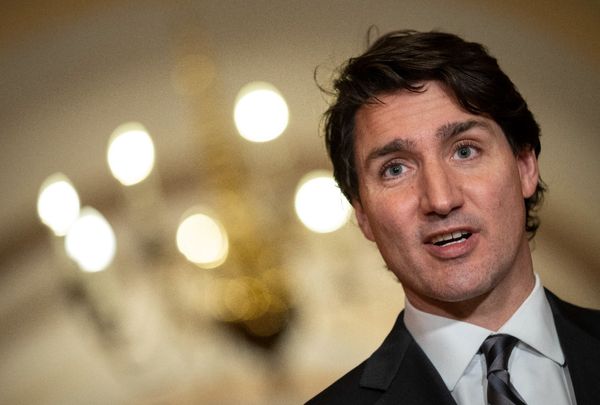
Hong Kong has reported a record 614 new cases of Covid-19, the vast majority of them the highly transmissible Omicron variant, but authorities are sticking to their guns on the territory getting back down to zero.
On Monday, the authorities reported the city’s highest daily number of cases since the pandemic began, a doubling of the previous day’s total, with more than a third untraceable. Another 600 cases were recorded as preliminarily positive. The sharp rise was attributed to last week’s lunar new year festivities, although the overall outbreak began late last year.
But government officials said they remained optimistic that Hong Kong’s tracing and containment strategies, which include snap lockdowns of buildings and mandatory testing and quarantine, would bring the outbreak under control. They urged people to “minimise mixing and stay home”.
“If you continue with such gatherings the epidemic will not stop, but if we all work together and minimise social gatherings hopefully from today we can actually suppress the spread of the disease,” said the controller of the Centre for Health Protection, Edwin Tsui.
Much of Hong Kong has already been shut down. Entertainment and public venues – even open spaces such as playgrounds and beaches – have been closed or told to suspend operations. Restaurants are barred from serving after 6pm, and gatherings of more than four people are banned.
Charlie, a 26-year-old Hongkonger from North Point, said he worried the outbreak was out of control and feared further restrictions. “It affects me a lot in my life. Like the increased restrictions and buildings lockdown, or the forced [isolation] in Penny’s Bay [despite] no symptoms: It makes me worried every time I go out,” he said.
“I have taken the vaccine (including booster shots), but there is no exception for that. These measures and controls affect my mental health a lot, and I wish to leave Hong Kong one day if I get the opportunity. I have been trying to stay strong, as I know life has to go on.”
The city’s government must be at zero-Covid before mainland China agrees to open borders with it, a step which the Hong Kong government has prioritised over reopening to the rest of the world. Polls suggest the public support this approach.
It has maintained one of the world’s best Covid responses in terms of keeping case numbers low, but has also sparked widespread frustration and confusion among the population with frequently changing and sometimes illogical measures.
Hong Kong’s policy of sending all positive cases to hospital has also put a strain on resources, with CPH officials on Monday admitting bed availability was “becoming really tight”. More than 1,600 cases were at the North Lantau hospital infection control centre, including two in critical condition.
In response to the strain on hospitals, some mild, asymptomatic or vaccinated Covid-19 patients would now be moved to the Penny’s Bay quarantine centre to recover, officials said. Some close contacts would also be allowed to isolate at home instead of the centres.
Lawrence, a Hong Kong resident originally from overseas, said most people he knew “wouldn’t dream of getting tested and coming forward” because of the strict requirements and possible lengthy separation from family, children and work, even if they weren’t ill.
He said the government “singlemindedly obsesses with getting back to zero Covid” in order to please Beijing, despite advances with vaccines and treatments greatly reducing mortality rates.
“It’s crushing, after two years,” said Lawrence, who did not want his surname to be published. “It [was] a wonderful safe place while the rest of the world figured out what to do … but [the fear of ] admitting we were wrong means they’ll probably lock us down and then realise Omicron can’t be controlled.”
Hong Kong is also battling low vaccination rates among the elderly population, many of whom had heeded earlier advice that with no cases they were better off not risking side-effects. The authorities have renewed pleas that all eligible people get the shot. Hong Kong has now reached a rate of 80% double-dosed, but less than 32% of those aged 80 or above have received at least one.
Speaking from a vaccination hub where he was receiving his booster, Lawrence said it appeared busy with people getting their first dose, suggesting some were now taking the advice.
Prof Ben Cowling, an epidemiologist at the University of Hong Kong, said that Hong Kong was in the more challenging phase of its “dynamic zero” strategy, which allowed the city to relax when it was at zero but required an agile switch to containment when there were cases.
“If you have cases in the community and don’t realise it, and you didn’t switch to the zero phase, then it’s going to be worse off,” he said last week. “In Hong Kong now it’s going to be challenging to get back down to zero.”
Cowling said the number of cases in Hong Kong was likely to be far higher than what was being reported. Cowling noted the near daily detections of unknown cases via the sewage surveillance process, which randomly targets about 100 of Hong Kong’s numerous high-rise buildings each day.
Additional reporting by Xiaoqian Zhu







